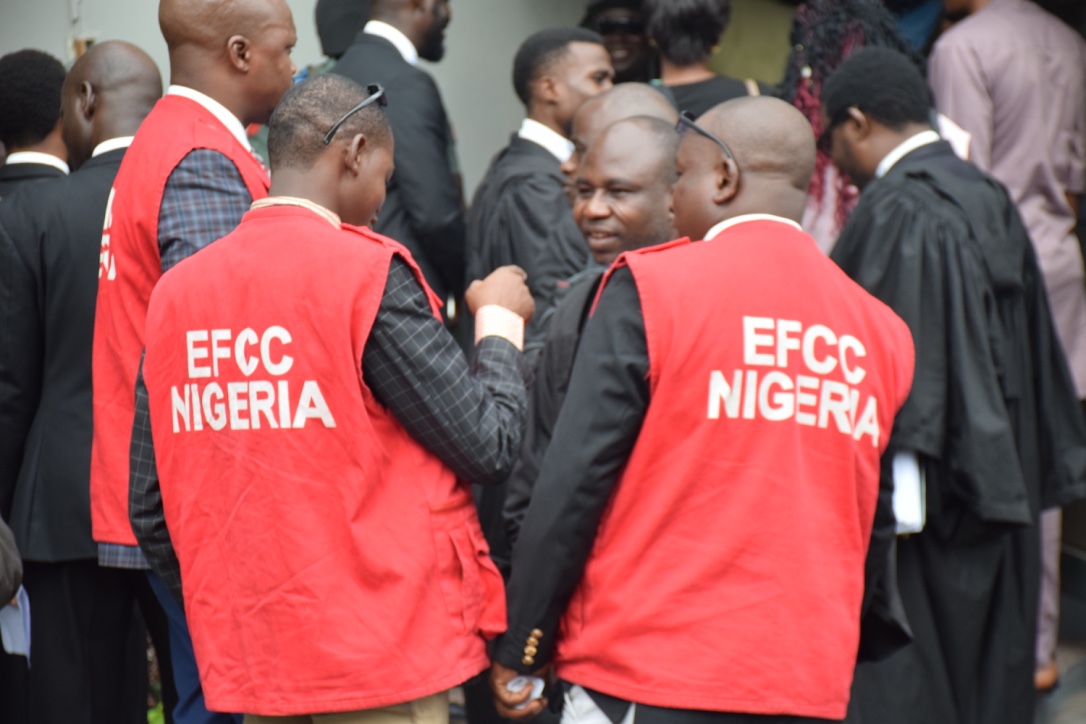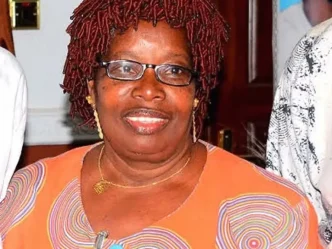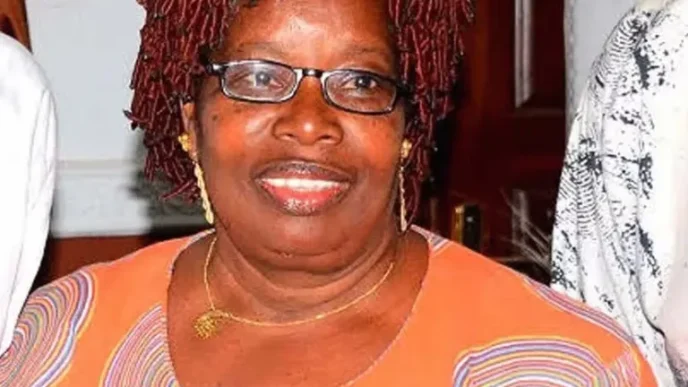BY PATRICK NWANKWO
Through the Economic and Financial Crimes Commission, EFCC initiates prosecution of corruption cases but it is essentially the judiciary that determines how they end. While some court judgements bring joy and laughter for the Commission, some are outright affliction and grief, especially when as the prosecution, the Commission marshalled all it could by way of evidence, testimony and addresses to press home its case and comes away with nothing; not by reason of lack of merit of the case or injudicious prosecution but by interfering technicalities. As such, while the anti-graft agency and the judiciary appear in principle as jolly-good friends in the anti-corruption fight, the truth is that they are not always and in fact, could be bad-tempered towards each other. Indeed the EFCC is almost certain that the judiciary is as much a friend as it is an adversary.
A classic omnishambles is the case of the former Abia State governor, Senator Orji Uzor Kalu. The Commission arraigned Kalu in court in 2007 for N7.1billion fraud. The matter dragged on for 12 years, scaling a barrage of long-drawn-out preliminary, interim and interlocutory injunctions, designed to ensure that the trial would not get over the line. While the case was proven beyond every reasonable doubt and merit had its way on December 5, 2019 when a high court, presided over by Justice Mohammed Idris, convicted and sentenced Kalu to 12 years in Kuja, Abuja Custodial Centre and ordered his Slok Nigeria Limited, being part of the tool of his crime to be liquidated and its assets, forfeited to the federal government, technicality had the final laugh when the Supreme Court on May 8, 2020 in a judgement read by Justice Ejembi Eko, nullified the entire trial on the ground that Justice Idris, who have been elevated to the Court of Appeal ought not have concluded the trial and delivered the judgement.
While the barring of the Commission from looking into the finances of state governments and performing its statutory functions or investigation, arrest and prosecution of suspected officials of sub-national governments by the courts are commonplace over the years, the recent interim injunction of the Kogi State High Court 4, Lokoja, presided over by Justice I. A Jami, restraining the Commission from arresting, detaining and prosecuting the immediate past governor of the state, Alhaji Yayaha Bello, whom it seeks to prosecute in two different courts: one on 19-count charges bordering on money laundering to the tune of N80.2billion, alongside his nephew, Ali Bello, and another on 16-count charges, bordering on money laundering and criminal breach of trust to the tune of N110.4 billion grossed out even judicial officials in the light of the danger of temples of justice becoming handy to questionable characters in hobbling the fight against corruption.
To address the rough patches the EFCC often go through from the judiciary, the Commission on annual basis over the past six years, has consistently created an atmosphere for a robust engagement with judicial officers towards forging a unanimity of purpose and a single front in the anti-graft war, through a collaborative effort with National Judicial Institute, NJI.
Advertisement
This year’s event was tagged: “EFCC-NJI Capacity Building Workshop for Justices and Judges.” It spanned from October 7 to 9 with the theme, “Integrating Stakeholders in Curbing Economic and Financial Crimes.” The Commission’s effort in this direction hinges on its conviction that the judiciary is a critical stakeholder in the administration of justice and indispensable in the anti-corruption fight.
Drawn to the event were members and leaders of the Bar and the Bench, reaching up to the Supreme Court and staff members and management of the EFCC. Vice President Kashim Shettima, represented President Ahmed Bola Tinubu. Others in the tapestry of human resources that drove conversation at the event are: Prince Lateef Fagbemi, SAN, Attorney General of the Federation and Minister of Justice, Chief Emeka Anyaoku, former Secretary General of Commonwealth, representative of Senator Godswill Akpabio, President of the Senate, representative of Hon Tajudeen Abbas, Speaker, House of Representatives, Chief Justice of Nigerian, Justice Kudirat Kekere-Ekun, Prof Itse Sagay, SAN, Ambassador Abdullahi Shehu, former Director General, Inter Governmental Action Group against Money Laundering in West Africa (GIABA) and Garba Abdullahi, Administrator, NJI, Senator Chukwuka Utazi, former Committee Chair on Economic Crimes.
Others are: Prof Ernest Ojukwu, SAN, former Deputy Director General and Head of Campus, Nigerian Law School, Enugu, Mr. Suraj Olarenwaju, Chairman, Human and Environmental Development Agenda (HEDA), AVM V.T. Udoh (retd), Member, Cybercrime Advisor Council, MD TMEA, Head of Office, Airbus, Nigeria, Hajia Hafsat Bakari, CEO, Nigerian Financial Intelligence Unit (NFIU), Mazi Afam Osigwe, President Nigerian Bar Association (NBA) and Musa Adamu Aliyu, SAN, Chairman ICPC.
Advertisement
While noting that the judiciary was critical in the success of the anti-corruption efforts, President Tinubu urged judicial officers to address the persistent issues that encumber expedited dispensation of justice in corruption cases.
“We are not oblivious of some challenges that continue to impede the speedy adjudication of corruption cases. They include frivolous applications and appeals, meant to delay trial, intimidation of judges by counsel, and judgement based not on the facts of cases but on technicalities. More importantly, I believe this event presents an opportunity for the bar and the bench to improve their capacity in dealing with emerging typologies of financial crimes,” he said.
In reminding judges of their key position in the success or failure of the society, Justice Kudirat Kekere-Ekun noted that there was no gainsaying the fact that “the decisions judicial officers make in our courts have a marked impact on the growth and stability of our dear nation, Nigeria, and this invariably affects its economic development and sustenance. As such, it behoves us to ensure that our decisions reflect an understanding and appreciation of the dynamics of the economic and financial systems, as well as global best practices in this regard. We must ensure that cases involving financial crimes are handled promptly, impartially and fairly, in strict adherence to the rule of law,” she said.
While lecturing on the theme: “Integrating Stakeholders in Curbing Economic and Financial Crimes,” Professor Sagay, SAN stated that the judiciary must be shielded from corruption at all costs if the fight against corruption must be won and to ensure the survival of the country.
Advertisement
“In a modern civilised state, members of the legislative and executive branches of government can afford to be corrupt without dangerously affecting the development and survival of the state, but not so, with the judiciary. A modern state cannot survive large-scale judicial corruption, because that is the state institution, responsible for judging and inflicting punishment on the corrupt,” he said.
He called on law enforcement agencies to direct their attention to lawyers who are in the business of defending the corrupt for the purpose of benefiting from proceeds of their financial crimes.
“The EFCC, ICPC and the police must monitor and investigate the activities of lawyers who receive a share of the proceeds of crime as their fees. They should be treated as accessories after the fact, because they share in the proceeds of the crimes of politically exposed persons, and once paid from that stained loot, it becomes their life’s struggle to protect and shield the primary criminals from the consequences of their crime.
“The duty to accept a brief does not exonerate a lawyer, who, convinced or suspects his client’s guilt, urges him to enter a plea of ‘not guilt’ which he then goes on to defend vigorously. Such a lawyer would be grossly in breach of the ethics of the legal profession. Where a lawyer is convinced after studying the facts and the law applicable, that his client is guilty of the crime for which he is charged, it is his duty of such a case to ask his client to plead guilty and to set out the extenuating factors, if any and plead for mercy for his client,” he said.
Advertisement
Another set of legal practitioners, whom Sagay identified as a fart in the system are senior lawyers who are in the business of corrupting judges with financial inducements in order to procure favourable judgements for their clients.
The three days of cross-fertilization of ideas saw resolutions reached on nearly all the vexatious issues that fray nerves in the EFCC-Judiciary relationship in the anti-corruption fight. The Commission took home the fact that it should take advantage of the extant fast track rules of court to expedite trial of cases of corruption, economic and financial crimes; that there is need for constant review of strategies, techniques and practices in the detection, investigation and prosecution of financial crimes to aid anti-corruption agencies secure more convictions in high profile cases.
Advertisement
The Commission further took home the fact that to effectively address issues that arise in the investigation of Money Laundering /Combating the Financing of Terrorism (AML/CFT) cases, there is need to adopt a more inclusive approach that involves all intermediaries and aligning with the country’s risk profile and fostering coordinated efforts among all stakeholders and that anti-corruption agencies and the judiciary should carefully evaluate the strength of evidence, public interest and the potential for abuse or interference in the course of justice while discharging their duties. An improved welfare for prosecutors and investigators was also considered as fundamental for an undistracted and result-oriented anti-corruption fight.
To aid the EFCC deliver more and faster on its mandate, participants agreed that there was need for continuous training of judicial officers to deal with new trends and best practices on digital forensics and other emerging typologies of economic and financial crimes. Foundational in aiding the EFCC deliver more on its mandate is for courts to be wary of granting “unjustified restraining orders issued at the behest of government officials and suspects under investigation” as this erodes public trust and confidence in the judiciary. Need was also identified for judges with track records of handling corruption, economic and financial crimes cases to be designated to handle such cases, so also the need for a strict adherence to Administration of Criminal Justice Act (ACJA) which provides a comprehensive framework for criminal justice procedures, and for ensuring efficient and fair administration of justice in Nigeria and contribution to a more effective criminal justice system.
Advertisement
Participants also emphasized the need for developing and sustaining synergy and coordination among all stakeholders in the administration of criminal justice in the country and increased reliance on non-conviction based asset forfeiture procedures in the forfeiture of assets, especially digital assets.
Nwankwo, an anti-corruption enthusiast writes from Lafia, Nasarawa State
Advertisement
Views expressed by contributors are strictly personal and not of TheCable.
Add a comment









